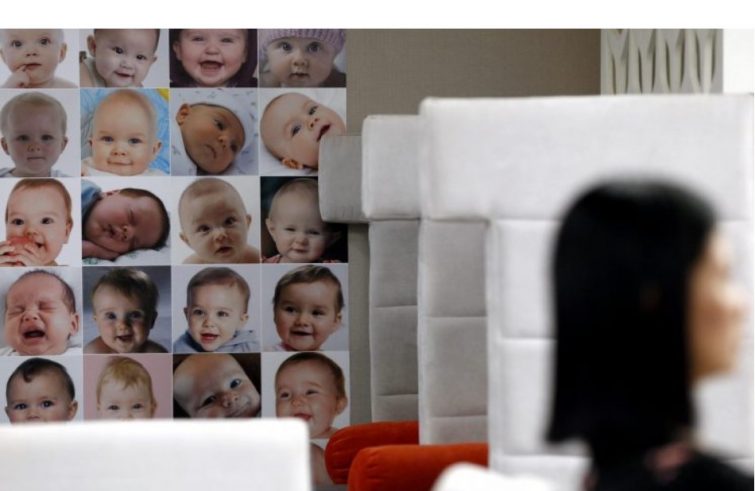
Italian legislators today began discussing the bill “on the crime of surrogacy committed abroad by an Italian citizen” in the Chamber of Deputies. Journalist, author and TV presenter Ritanna Armeni gets straight to the point.
Surrogacy, gestational surrogacy, “rent-a-womb”. Which one do you prefer?
Depending on one’s point of view, this procedure can be called many different things: I’m going to choose “rent-a-womb” because I feel totally negative about it. Let’s call a spade a spade: it amounts to renting a womb,
a practice that must be fought with unwavering determination.
Do you think that the bill being debated in the Chamber could be a successful tool to curb this practice in our country?
I tend to believe very strongly in cultural battles over issues like this, in the importance of opening a debate, in the ability to discuss and convince people. On the other hand, I have no faith in the effectiveness of laws; they certainly indicate a cultural inclination and attitude, but they can easily be circumvented.
In your opinion, is it unrealistic to make it a “universal crime”?
It is, and it is easy to get around it. In my opinion, this issue should be tackled at an earlier stage, from an anthropological and cultural point of view. The practice of surrogacy is based on a profound social transformation of maternity, paternity and the relationship between childhood and adulthood. Call it a universal crime, but what would actually change? I think we should rather try to convince people that it is possible to live, work, think and even be happy on the basis of different values. I often find myself arguing with some feminists: I agree with them about surrogate motherhood, but I don’t agree with their idea of punishment.
What would you say to those who claim that it is a woman’s free choice to decide what she wants to do with her own body?
It is a pretext and a misinterpretation of the principles that gave rise to the feminist movement. The underlying claim is ‘my body, my choice’, but we don’t know what this woman would do if she were not in distress. What I find most disturbing in this case are the stories and lies that people who choose this practice tell themselves. I have met several of them. They all claim that they made a gesture of kindness to the surrogate mother, that she wanted to make a gesture of kindness to them and they gave her the opportunity, that there was no exploitation because everything was done in the full exercise of the freedom of those who “lent” their womb. On the contrary, we are well aware that the women who decide to rent a part of their body for a few thousand euros or dollars – the fees for surrogate mothers are very low in some countries, for example in Georgia they amount to around two thousand EUR – are driven into surrogacy by sheer financial need.
Invoking principles of freedom, self-determination or altruism is just an excuse to clear one’s conscience.
If you are constrained by need, you cannot speak of freedom. For me, an old Marxist, freedom is first and foremost freedom from need.
Another argument used by pro-surrogacy advocates is altruism towards those who want children but cannot have them.
In fact, it’s quite the opposite. There is nothing altruistic about this practice, far from it. It reinforces selfishness because it is based on the idea that motherhood is an exclusively biological fact: to be a mother you need to have a body which, in this case, is not yours. It celebrates a selfish form of motherhood as possession, because the child is essentially ‘bought’, which is not what motherhood is. It reinforces the idea that money can buy everything and that every wish, however humanly understandable, can be turned into an absolute right. I believe that this does not help childless couples to find a different way of parenting, and it is no coincidence that I use the term ‘parents’ rather than ‘mother’.
Taking the traditional biological route with the money of the rich and the need of the poor is the wrong shortcut.
It would be better to help the former to discover a gradual, positive, intelligent idea of parenthood. How can ‘buying’ a woman’s womb be the only option?
Are you referring to adoption or some other alternative?
Yes, adoption, as well as any form of parenthood, the ability to express fatherhood and motherhood in society.
Motherhood and parenthood should not be pitted against each other. What are your thoughts on that?
I disagree with the ‘motherhood mystique’ that much of the feminist world has put on display in this battle.
My criticism of the rent a womb practice is not based on the supposed superiority of the mother as such, but simply on the fact that it is pure exploitation.
The motherhood mystique is detrimental to this campaign. If there is to be a mystique, it should be the parenting mystique, i.e. the ability of the adult world to cope with a society in which very few children are born, in which living standards have declined, and in which the gap between the world of the poor and the world of the rich is so wide that it leads to unacceptable forms of exploitation – such as this.












